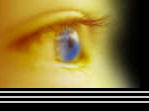Diagnosis
“I think that, all along the way I wanted people to help me, but I just wouldn’t let them.
There was a fear of loss somehow, I think… I was just absolutely afraid to reach out to people, and to tell them what
was going on, how I could use their help, how they could affect my life.”
— Stuart
Read more comments from people with bipolar disorder
Why early diagnosis and treatment are important
It’s important to get treatment for bipolar disorder, sometimes called manic depression, as early as possible.
Many people with bipolar disorder don’t know they have it. Some don’t seek treatment because
they are ashamed of what they feel. Others are incorrectly diagnosed with other illnesses, such as depression, anxiety, or
schizophrenia.
The right treatment can make bipolar disorder easier to manage. Also, controlling symptoms can help people
live more normal lives.
Learning how to recognize bipolar disorder may help you get the right diagnosis. Healthcare providers need
to hear exactly how you are feeling in order to make the right diagnosis. That way, you can get the right treatment sooner.
If you have bipolar disorder, as you get older your mood episodes can happen more often. If someone has
4 or more episodes a year, bipolar disorder can be even harder to treat. So it’s important to get treatment as early
in life as possible.
Are there any other illnesses linked to bipolar disorder?
Some people have symptoms of bipolar disorder when they're fairly young but don’t get diagnosed right
away. These people are more likely to also develop alcohol problems and other substance-abuse problems. These problems can
make their bipolar disorder harder to manage. They also can increase the number of times they have to go to the hospital.
Other problems linked to bipolar disorder include:
- Eating disorders such as anorexia and bulimia
- Attention-deficit/hyperactivity disorder (ADHD)
- Panic disorder
- Social phobia
These disorders can be dangerous and may need medical treatment.
The Mood Disorder Questionnaire may help
There is no lab test that can detect bipolar disorder. However, a simple questionnaire can help a healthcare
provider tell if someone has symptoms of bipolar disorder.
This questionnaire is called the Mood Disorder Questionnaire, or MDQ. The MDQ is a checklist that helps
a healthcare provider to look more closely for bipolar-related symptoms. Remember, only a healthcare provider can make an
accurate diagnosis.
Click here for a copy of the Mood Disorder Questionnaire.

